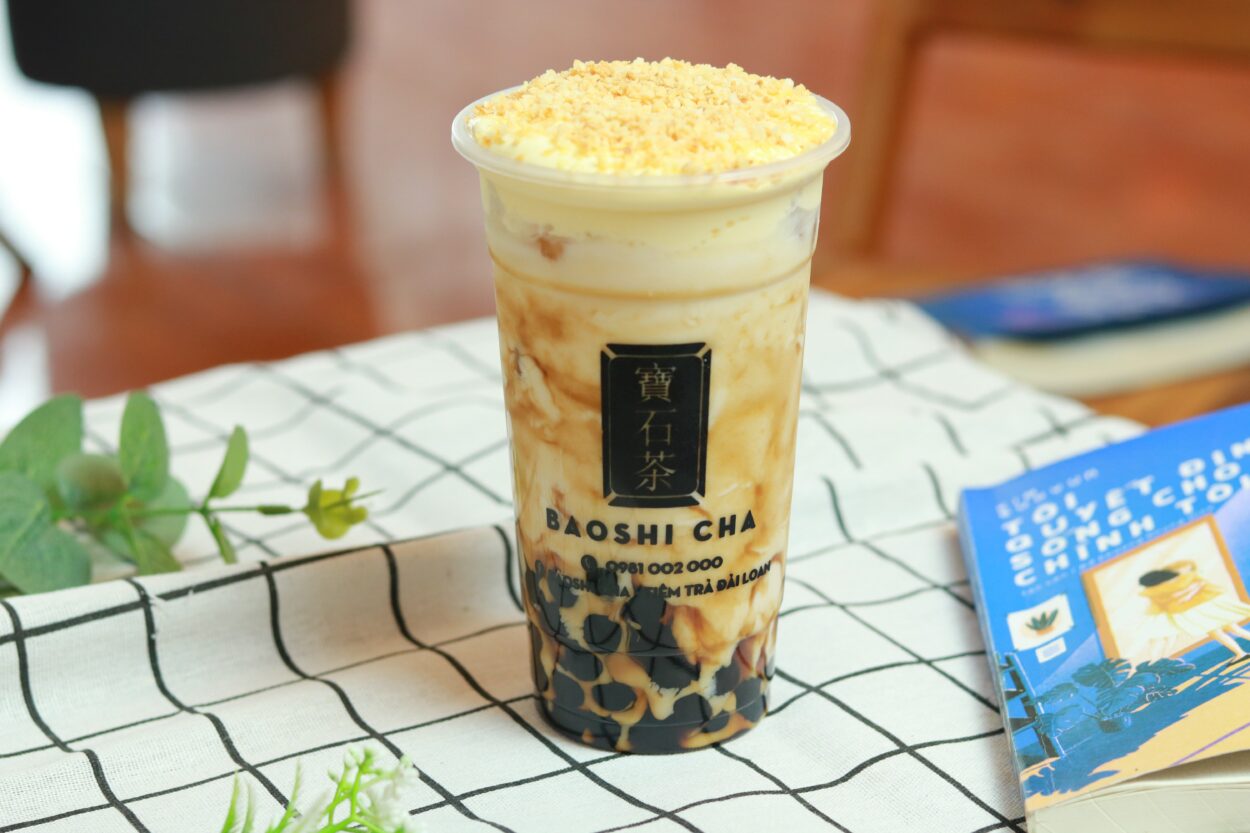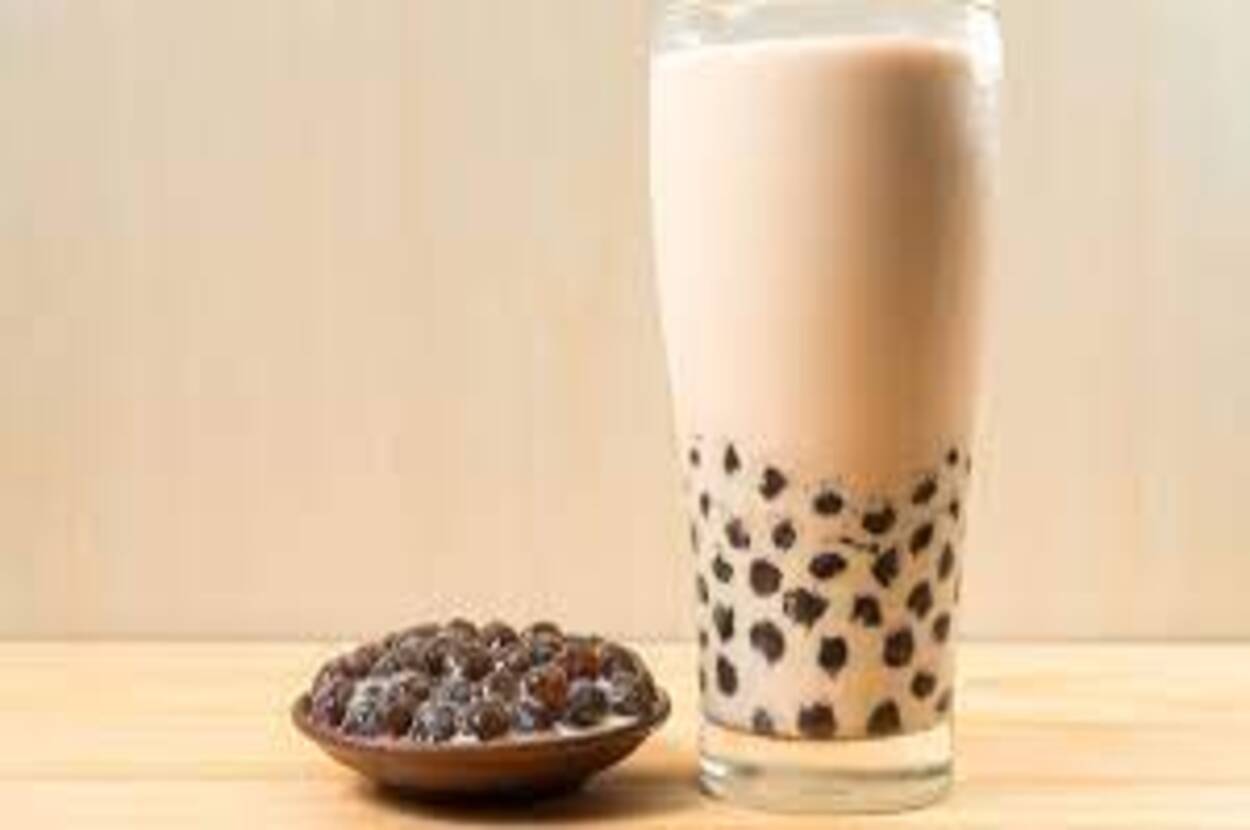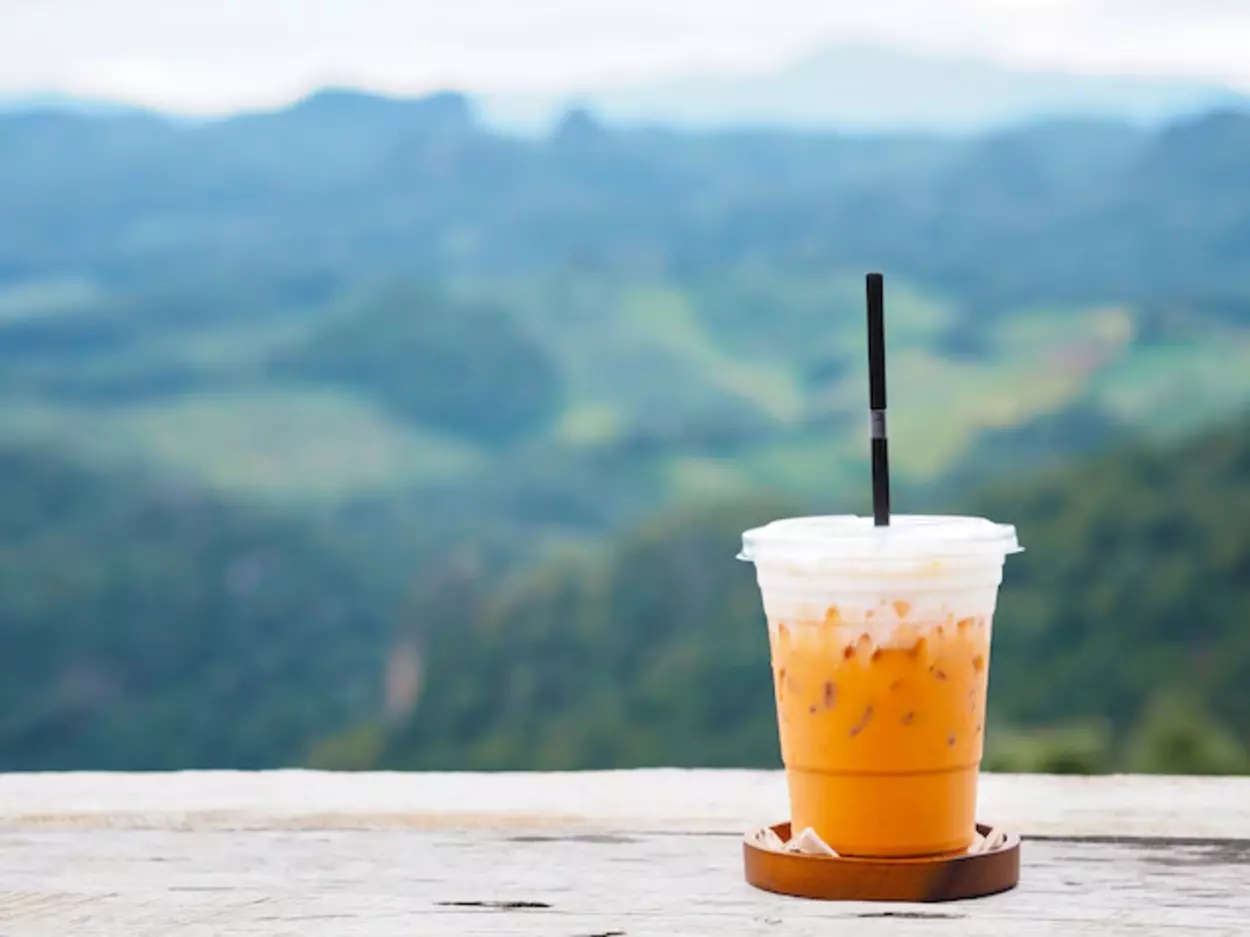
Thai tea with boba, also known as bubble tea or pearl milk tea, has gained immense popularity in recent years. This unique and delicious drink has become a staple in many trendy cafes and bubble tea shops around the world. But is Thai tea with boba good for you?
The short answer is yes, Thai tea with Boba can be good for you if consumed in moderation.
In this article, we will discuss the nutritional content of Thai tea, the health benefits of its ingredients, and the potential downsides of consuming this popular beverage.
Keep reading to find out more about whether Thai tea with boba is a healthy choice for you.
What Is Thai Tea?
Thai tea is typically made with black tea, sugar, turmeric, star anise, and condensed milk. It is often served over ice and has a distinct orange color.
Boba Thai Tea
If the standard Thai tea is prepared with boba pearls it is known as Boba Thai tea. The pearls are added for a fun and chewy texture which adds flavor to an already yummy drink.
The Nutritional Content of Boba Thai Tea
The nutritional content of Thai tea can vary depending on the specific recipe and preparation method, but in general, it is a relatively high-calorie and high-sugar beverage.
A standard (16 oz) serving of Thai tea with boba can have between 300 and 400 calories, with the majority of those calories coming from sweeteners like condensed milk and syrups that contain added sugar.
Moreover, boba pearls, which are tiny, chewy tapioca balls prepared from cassava starch, are frequently served with Thai tea.

The Health Benefits of Black Tea
One of the main ingredients in Thai tea is black tea, which has been associated with several health benefits.
- Black tea is rich in antioxidants, particularly polyphenols, which are known to have potential health-promoting properties. Antioxidants help to neutralize harmful free radicals in the body, which can cause damage to cells and contribute to various chronic diseases, including heart disease and cancer.
- Research has shown that black tea may have beneficial effects on heart health, including reducing the risk of cardiovascular disease.
- Studies have also suggested that black tea may help improve brain function, boost metabolism, and support a healthy immune system.
- Furthermore, black tea has been found to contain vitamins and minerals, such as manganese, potassium, and vitamin B6, which are important for overall health and well-being.
The Benefits of Boba Pearls
Boba pearls, also known as tapioca pearls or bubbles, are a popular addition to Thai tea that adds a unique texture and chewiness to the drink.
Boba pearls are made from tapioca starch and are normally cooked in a sweet syrup prior to being added to the tea. While boba pearls are low in calories and fat, they are high in carbohydrates and sugar.
- Despite their high carbohydrate content, boba pearls are good sources of energy, and the carbohydrates they contain can be beneficial for providing quick energy and replenishing glycogen stores in the body.
- Tapioca pearls are also gluten-free and suitable for individuals with gluten sensitivities or celiac disease.
- The chewy texture of boba pearls can also provide sensory stimulation and contribute to the overall enjoyment of the drink.

Potential Downsides of Thai Tea with Boba
While Thai tea with boba can offer some health benefits, it’s important to be aware of potential downsides as well.
One of the main concerns with Thai tea with boba is its high sugar content. The added sugars in Thai tea, such as condensed milk and syrups, can significantly contribute to the overall calorie and sugar intake of the beverage.
In addition, some commercial Thai tea mixes or bubble tea powders may contain artificial flavors, colors, and preservatives, which may not be beneficial for health in the long term.
Understanding Added Sugars in Thai Tea
Added sugars are one of the main concerns when it comes to the potential health risks associated with consuming Thai tea with boba.
Added sugars are sugars that are added to food and beverages during processing or preparation, and they can contribute to excessive calorie intake without providing much nutritional value.
In Thai tea, added sugars are typically found in the form of condensed milk, syrups, or sweeteners.
According to the American Heart Association (AHA), the recommended added sugar intake should be no more than 9 teaspoons (36 grams) per day for men and 6 teaspoons (25 grams) per day for women.
However, a typical serving of Thai tea with boba can contain much higher amounts of added sugars, sometimes exceeding the daily recommended limit in just one serving.
Moderation and Balance in Consuming Thai Tea with Boba
While Thai tea with boba can be an enjoyable treat, it’s important to consume it in moderation and as part of a balanced diet. Paying attention to portion sizes and being mindful of the added sugars in the beverage can help you make healthier choices.
Here are some tips to enjoy Thai tea with boba in a healthier way:
Opt for smaller serving sizes
Instead of large or oversized cups, choose smaller serving sizes of Thai tea with boba to reduce overall calorie and sugar intake.
Choose lower-sugar options
Look for recipes or commercial brands that offer lower-sugar or sugar-free versions of Thai tea. You can also request less sugar or use natural sweeteners, such as honey or stevia when making your own Thai tea at home.
Check this video for a yummy Boba Thai tea recipe.
Use high-quality ingredients
Choose high-quality black tea, fresh milk, and natural flavorings when making Thai tea with boba at home to avoid unnecessary additives or preservatives.
Limit frequency of consumption
Enjoy Thai tea with boba as an occasional treat rather than a daily indulgence to keep your overall sugar intake in check.
Nutritional Information of Thai Tea with Boba
| Nutrient Amount | Per Serving (16 oz) |
| Calories | 300-400 |
| Total Fat | 5-10 g |
| Saturated Fat | 3-6 g |
| Cholesterol | 15-40 mg |
| Sodium | 30-60mg |
| Total Carbohydrates | 50-70 g |
| Dietary Fiber | 1-2 g |
| Total Sugars | 40-60 g |
| Protein | 3-5 g |
| Vitamin D | 0-2% |
How many calories are in Thai tea with boba?
The exact calorie content of Thai tea with boba can vary depending on the recipe and serving size. On average, a 16-ounce serving of Thai tea with boba can contain around 300-400 calories.
However, some variations or larger servings may contain higher calorie counts.

Does Thai tea with boba have a lot of sugar?
Thai tea with boba generally contains lots of sugar
The traditional Thai tea recipe often includes sweetened condensed milk, which can significantly increase the sugar content of the beverage.
A typical 16-ounce serving of Thai tea with boba can contain around 40-60 grams of sugar, which is equivalent to 10-15 teaspoons of sugar.
Is Thai tea the same as Boba tea?
Thai tea and boba aren’t the same.
Thai tea refers to a type of tea that is popular in Thailand and is usually made with black tea, sugar, and milk. Boba tea, on the other hand, refers to a type of Taiwanese tea-based beverage that typically includes tea, milk, sweeteners, and tapioca pearls (also known as boba).
So, Thai tea with boba specifically refers to Thai tea that is served with tapioca pearls.
Conclusion
- Thai tea with boba can be a delicious and enjoyable beverage, but it’s important to consume it in moderation and with mindful choices.
- While Thai tea can offer health benefits through antioxidants in black tea, essential nutrients from milk, and carbohydrates from tapioca pearls, it can also be high in added sugars, artificial flavors, and preservatives.
- Being aware of portion sizes, choosing lower-sugar options, using high-quality ingredients, and limiting the frequency of consumption can help you enjoy Thai tea with boba in a healthy way.
- As with any food or beverage, balance, and moderation are key to maintaining a healthy diet.
- So, go ahead and enjoy a refreshing cup of Thai tea with boba as an occasional treat while keeping your overall health and well-being in mind.